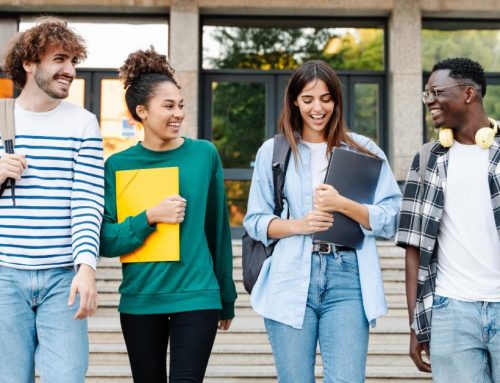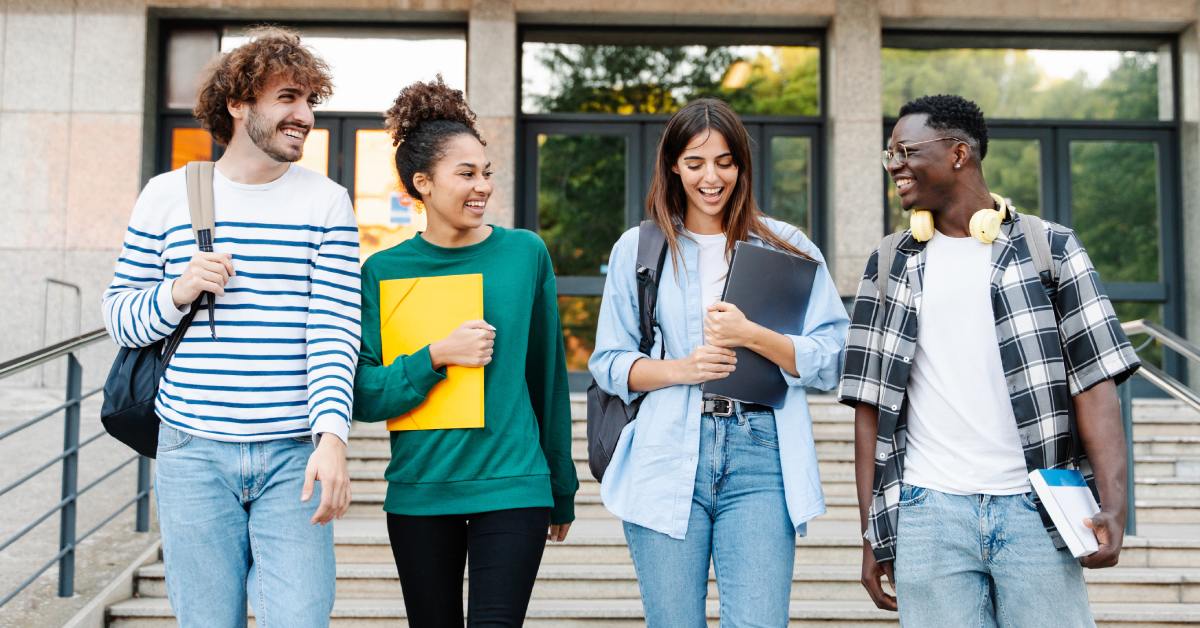Moving to the United States as an international student can be an exciting and challenging experience. From navigating cultural differences to understanding academic systems, the adjustment period requires patience and an open mind.
There are many opportunities for academic and personal growth during this transition. Knowing what to expect and how to adjust to life in the US as an international student can make for a better experience.
Adjust to New Academic Expectations
The education system in the US may be different in structure compared to other countries. Active involvement in discussions, sharing perspectives, and raising questions constitute signs of engagement and effort. Therefore, classes commonly encourage participation, critical thinking, and questioning. This might feel new for students from education systems that prioritize memorization or lengthy lectures.
Assignments and grading systems might also differ. Courses might include multiple assessments such as quizzes, projects, midterms, and final exams. Time management becomes crucial to effectively juggle these various tasks along with extracurricular activities and free time.
Another significant aspect of academics is the relationship between students and professors. Faculty members in the US are generally approachable and open to feedback, and many encourage dialogue during office hours. Taking advantage of these opportunities for guidance can help clarify academic doubts and strengthen the student-professor relationship.
Apply to the Right Academic Program
Acclimating to academic expectations in the US also means becoming familiar with this country’s education system. There’s a variety of educational programs available to international students that suit wide-ranging academic and career goals.
Beyond colleges and universities that offer traditional four-year degree programs and graduate studies, reputable institutions in the US also offer comprehensive certification and career training programs. Computer Systems Institute is one institution that provides time-saving, cost-effective alternatives to lengthy degree programs.
At our international admissions office, we support individuals who are already international students or want to become international students. Our representatives use their knowledge to guide individuals transferring from a different US institution, changing their visa status, or needing to complete the reinstatement process.
Form Social Connections

It’s natural for homesickness to emerge at some point, and during such times, staying connected with family and friends from home and seeking out a campus counselor can help. While the initial phase may feel isolating, building a social network can help you get comfortable with life in the US. Making the effort to establish friendships can provide emotional support and enrich the overall experience.
Joining campus organizations, clubs, or cultural groups is a great starting point. Institutions in the US have a wide array of student organizations, catering to interests that range from sports and arts to service projects and academic societies. International students can also look for groups specifically designed to connect individuals from similar cultural backgrounds.
For those living on or near campus, shared living spaces like dormitories or apartments can foster close relationships. Participating in events like movie nights, group outings, or casual meetups is a simple and effective way to bond with roommates or neighbors.
Adapt to the Cuisine
Getting used to new dining habits can be another unexpected challenge. While American cuisine is diverse, the prevalence of fast food and unfamiliar options might not align with everyone’s tastes or dietary restrictions. Exploring grocery stores and international markets or cooking familiar dishes can help bridge this gap.
Incorporate Physical Activity
International students adjusting to life in the US should also prioritize other aspects of their health and well-being in addition to their food intake. Physical activity and mental wellness, for example, can help contribute to a smooth transition.
Many institutions in the country offer on-campus gyms, classes, or wellness programs that not only help maintain health but also provide opportunities to meet others with similar interests. Plus, taking part in mindfulness practices or sports can reduce academic stress and enhance a person’s overall quality of life.
Overcome Language Barriers
For students who aren’t native English speakers, language barriers present a significant hurdle. From lectures to casual conversations, the constant use of English might feel exhausting at first. Nevertheless, immersion is one of the best ways to improve fluency over time.
Institutions often provide resources to support language development, such as writing centers, English conversation groups, or language exchange programs. At Computer Systems Institute, we offer English as a Second Language (ESL) courses that help students attain fluency and achieve confidence in their English skills. Taking advantage of these services can significantly bolster confidence and competence in English.
For academic purposes, understanding phrasing, technical terms, or lecture-specific jargon may initially be overwhelming. Recording lectures, taking detailed notes, or studying with classmates can help decode unfamiliar terms and concepts effectively.
Speaking regularly with peers, professors, and locals also facilitates improvement. While occasional mistakes are inevitable, most people are patient and willing to help international students refine their language skills. Recognizing all forms of progress, no matter how small, can boost morale and encourage continued practice.
Balance Old and New Traditions
Studying abroad doesn’t mean leaving one’s identity behind. Instead, it becomes an opportunity to integrate new practices while cherishing existing ones, leading to a more enriching cross-cultural experience.
Experiencing new traditions and celebrations can be one of the most exciting parts of living in the US. From enjoying Thanksgiving dinner to watching fireworks on the Fourth of July, participating in these events adds depth to the American experience.
Balancing these new traditions with your cultural heritage is equally important. Maintaining customs from home, such as celebrating festivals or cooking traditional meals, can create a sense of comfort and familiarity while living abroad. Sharing these customs with new friends or involving them in celebrations can also help international students bond with their surroundings on a deeper level.
Grow and Stay Mentally Tough

Adjusting to life in the US as an international student is a story of growth, personal and professional. While it’s natural to face challenges, these experiences shape resilience, adaptability, and independence. Each adjustment period, whether focused on academics, social connections, or cultural understanding, adds a layer of personal development that extends beyond student life.
Many international students find that the skills they develop while adjusting become valuable assets in their future careers. Navigating a new country develops problem-solving abilities, cross-cultural communication skills, and a global perspective. These traits are increasingly valued by employers in this interconnected world.
Approaching challenges with patience, seeking out available resources, and focusing on every step of progress can make this phase fulfilling. Ultimately, the experiences gained while studying abroad contribute to a deeper understanding of oneself and the world, laying a foundation for a successful future.







